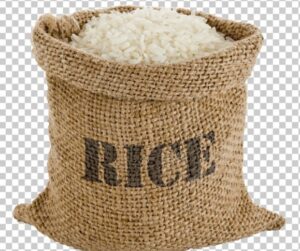How Power Outages in Northern Nigeria Drive Rice Prices Up to N160k in Gombe
How Power Outages in Northern Nigeria Drive Rice Prices Up to N160k in Gombe

Businesses in Bauchi, Gombe, and Jigawa are facing significant losses due to a week-long blackout caused by the vandalism of a power transmission line in northern Nigeria. The disruption has severely affected essential services, including water supply, sanitation, and healthcare, with many hospitals operating without electricity.
Local shopkeepers, millers, and artisans expressed their frustration in a survey conducted by the News Agency of Nigeria (NAN), describing the situation as dire. Rice millers in Gombe, in particular, lamented the negative impact of the unreliable power supply on their operations.
Musa Arab, a miller in the Nassarawo Industrial Layout of Gombe, explained that the power outages have crippled their ability to process paddy rice. Without electricity, they are unable to operate their machines, and rising fuel prices for generators make it financially unfeasible. This has led to a decrease in rice availability, posing a serious threat to food security.
“We need to invest in reliable power because it’s crucial for industry,” Arab stated, noting that over 20 workers in his mill have been without jobs for the last ten days due to the outages. He urged the government to take stronger action against those responsible for the ongoing grid failures, suggesting that some may be profiting from the situation.
Yusuf Ibrahim echoed these concerns, warning that the current situation could exacerbate inflation as local rice prices soar due to diminished supply. Many vendors have increased their prices to compensate for higher diesel costs, further impacting consumers.
At the Gombe Main Market, a 100-kilogram bag of rice is now priced between N120,000 and N160,000, compared to N110,000 to N150,000 prior to the blackout. Rice dealer Usman Sani attributed the price hike to reduced market supply, despite a good harvest season.
Bartender Ugochukwu Daniel in Bauchi also criticized the inconsistent power supply, stating that the lack of reliable energy is hindering Nigeria’s economic progress. He mentioned his increased expenses on fuel for generators to keep his business running.
Samuel Adamu, a local laundry operator, reported that the ongoing power issues have forced him to rely on charcoal for ironing clothes, despite the increased costs and inconvenience. He noted that many laundries are adopting a division of labor to manage expenses, charging N300 for washing and ironing services.
In response to these challenges, Mr. Muhammad Adamu, Chairman of the Jigawa State House Assembly Committee on Power and Energy, highlighted the newly proposed Jigawa Electricity Law 2024, which aims to enhance power generation and distribution in the state. This law will establish the Jigawa Electricity Commission to regulate the state’s energy market, ensuring reliable and affordable power supply while protecting residents and investors.
Adamu stressed that this legislation would help reduce vandalism and improve the overall power situation, benefiting all sectors of the economy, particularly in rural areas.
TRENDING SONGS
 See How Man That Plans to Divorce His Wife, Gets Shocked When She Leaves Him First With Their 5 Kids
See How Man That Plans to Divorce His Wife, Gets Shocked When She Leaves Him First With Their 5 Kids
 Tragic Land Dispute: Man Kills Father in Imo, Pastor Arrested for Rape
Tragic Land Dispute: Man Kills Father in Imo, Pastor Arrested for Rape
 Nigeria Grants Air Tanzania Passage for Direct Flights
Nigeria Grants Air Tanzania Passage for Direct Flights
 KWAM 1 vs KWAM 2: Nigerians Call Out Inconsistent Treatment in Aviation Offense Cases
KWAM 1 vs KWAM 2: Nigerians Call Out Inconsistent Treatment in Aviation Offense Cases
 Nigerian Soldiers Light Up Social Media with Energetic Dance Moves
Nigerian Soldiers Light Up Social Media with Energetic Dance Moves
 Sniper Scandal: See How Chief Ajibade Forces Corn Thief to Drink Poison; Accused Arrested, Monarch Clear Air(VIDEOS)
Sniper Scandal: See How Chief Ajibade Forces Corn Thief to Drink Poison; Accused Arrested, Monarch Clear Air(VIDEOS)
 Woman Finds Out Husband Married Another Wife Through Facebook After Having Three Kids Together
Woman Finds Out Husband Married Another Wife Through Facebook After Having Three Kids Together
 If Anything Goes Wrong During Labor, Save Me—Not the Baby”: Is This a Normal Statement from a Responsible Woman?
If Anything Goes Wrong During Labor, Save Me—Not the Baby”: Is This a Normal Statement from a Responsible Woman?
 See How Jealous Partner Allegedly Sets Girlfriend and Sister on Fire
See How Jealous Partner Allegedly Sets Girlfriend and Sister on Fire
 “Thunder Will Strike You” – Super Falcons Star Okoronkwo Speaks Out on Threatening Messages
“Thunder Will Strike You” – Super Falcons Star Okoronkwo Speaks Out on Threatening Messages
Share this post with your friends on ![]()













